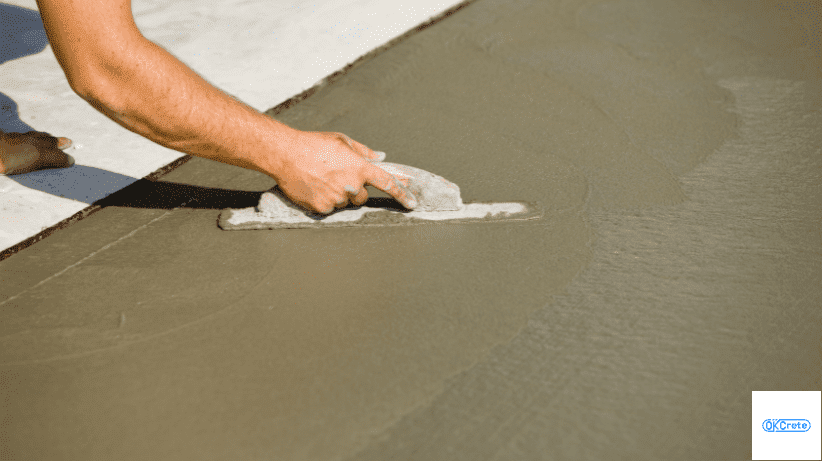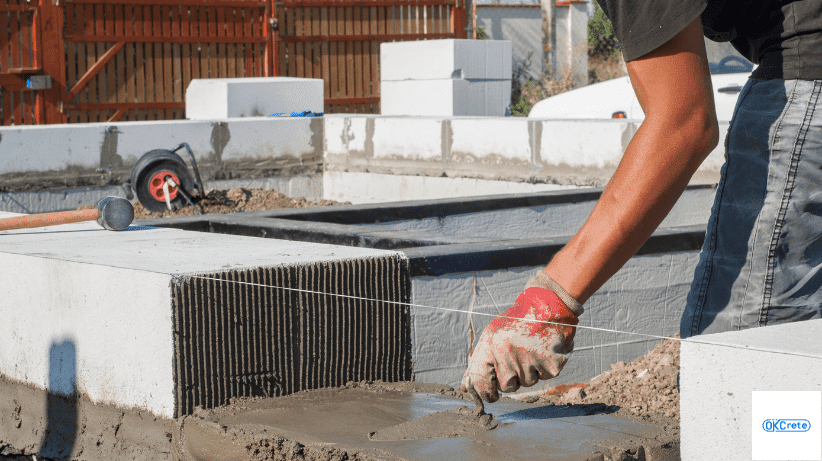When it comes to choosing the ideal material for your driveway, the decision between a concrete or asphalt driveway, can significantly impact both the aesthetics and functionality of your property. Concrete driveways and asphalt represent two popular options, each with its unique set of advantages and considerations.
Concrete is known for its durability and versatility, offers a sleek, modern appearance and is highly resistant to wear and tear. On the other hand, asphalt is favored for its cost-effectiveness, quick installation, and ability to adapt to various weather conditions.
As homeowners weigh factors such as maintenance requirements, longevity, budget, and curb appeal, understanding the distinctive qualities into the key characteristics of these materials, providing valuable insights to help you make an informed choice that aligns with your specific needs and preferences.
Maintenance

This is a crucial aspect to consider when choosing between asphalt and concrete, as both materials have distinct requirements to ensure their longevity and visual appeal.
Concrete Driveways generally require less keep-up than asphalt. One of the main advantages of concrete is its durability and resistance to wear and tear. However, they are not entirely maintenance-free. Over time, concrete driveways might develop cracks due to factors such as shifting ground or extreme weather conditions.
Regular cleaning is essential to remove stains and debris, and sealing the surface every few years can help prevent cracks and prolong its lifespan. If cracks do occur, they need to be repaired promptly to prevent water from seeping in and causing further damage.
Asphalt Driveways, while cost effective and quick to install, require more regular maintenance compared to concrete. They are susceptible to damage from UV rays, oil spills, and harsh weather conditions. To maintain an asphalt driveway, regular sealing is necessary, typically every 2-3 years, to protect it from the elements and keep it looking fresh.
Cracks and potholes in asphalt pavement should be promptly repaired to prevent them from expanding, which can lead to more extensive damage. Unlike concrete, asphalt is prone to softening in extremely hot weather and hardening in very cold temperatures, which can cause cracks and surface degradation over time.
So, both driveway types require attention, concrete driveways generally demand less frequent maintenance than their asphalt counterparts.
However, proper and timely maintenance is crucial for both to ensure their longevity, structural integrity, and overall visual appeal. Understanding these differences can help homeowners make an informed choice based on their willingness to invest time and effort into driveway care.
Durability

When comparing to asphalt vs. concrete to asphalt in terms of durability, several key differences come into play:
Concrete
- Strength & Durability: Concrete is exceptionally strong and durable. It can withstand heavy loads and is less prone to damage from the weight of vehicles. A properly installed and maintained concrete driveway can last for several decades.
- Resistance to Cracking: While concrete is strong, it is also susceptible to cracking, especially in areas with frequent freeze-thaw cycles. However, proper installing techniques, such as adequate reinforcement and control joints, can minimize the risk of extensive cracking.
- Stain Resistance: Concrete is susceptible to stains from oil, grease, and other substances. Sealing can help protect against stains, but keeping up with it regularly is necessary to keep the driveway looking pristine.
Asphalt
- Flexibility: Asphalt is more flexible than concrete, which allows them to withstand minor ground movement without cracking. This flexibility is particularly beneficial in regions prone to earthquakes or areas with expansive clay soils.
- Maintenance: Asphalt requires a good amount, including sealing every few years. Doing this properly helps protect the asphalt from oxidation and water damage, which can extend its lifespan.
- Susceptibility to Damage: While asphalt is flexible, it is more susceptible to damage from heavy loads and extreme heat. Prolonged exposure to the sun’s ultraviolet rays can cause the asphalt to become brittle and lead to cracks and deterioration.
So, a concrete driveway is generally going to be stronger and have a longer lifespan than an asphalt driveway, making it a durable choice for homeowners looking for an easy to keep up with, long-lasting option. However, asphalt does offer flexibility, making it a suitable choice for regions with unstable soil or seismic activity.
The choice between concrete and asphalt ultimately depends on factors such as local climate, budget, aesthetic preferences, and the level of work a homeowner is willing to undertake to ensure the driveway’s durability over time.
Aesthetics

When it comes to aesthetics, both concrete and asphalt offer distinct visual appeal, and the choice between the two often depends on individual preferences and the overall design goals of the property.
Concrete
- Variety of Finishes: Concrete offers a wide variety of finishes, from smooth and polished surfaces to stamped or textured patterns that mimic materials like brick, stone, or tile. This variety allows for creative and customized designs, making a concrete driveway a popular choice for homeowners seeking unique and decorative options.
- Color Options: Concrete can be colored in various shades to complement the surrounding landscape or match the exterior of the house. Integral pigments and staining techniques provide homeowners with flexibility in achieving the desired color palette.
- Modern & Clean Look: Concrete often gives off a modern and sleek appearance, making it an excellent choice for contemporary or minimalist architectural styles. The smooth, uniform surface contributes to a clean and sophisticated aesthetic.
Asphalt
- Uniform Appearance: Asphalt has a consistent, dark color, providing a uniform look. While some homeowners appreciate the classic black appearance, others might find it less visually versatile compared to concrete.
- Blending with the Environment: Asphalt tends to blend well with the natural surroundings, especially in residential areas where many driveways are made of asphalt. The dark color can compliment green landscapes and create a cohesive visual appeal.
- Warmth: In colder regions, asphalt can absorb and retain heat, helping to melt snow and ice faster. This practical aspect can be advantageous in areas prone to winter weather.
In all, concrete offers greater versatility in terms of finishes and colors, allowing for a broader range of design possibilities. It is particularly well-suited for homeowners looking to achieve a modern, customized, or decorative aesthetic.
Asphalt, on the other hand, provides a uniform appearance that blends well with the environment and can be a practical choice in regions with cold weather. Ultimately, the choice depends on personal style preferences and the desired visual impact on the overall property.
Installation Process

Let’s drive into the specific differences between the process of installation for concrete and asphalt driveways.
Concrete Driveway
- Excavation: The area designated for the driveway is excavated to create a level surface. Any existing vegetation, soil, or debris is removed to prepare the ground for the concrete.
- Framework: Wooden or metal forms are installed along the edges of the driveway to define its shape and hold the concrete in place during pouring.
- Base Preparation: A base layer of compacted gravel or crushed stone is laid to provide a stable foundation for the concrete. Proper compaction is crucial to prevent shifting and settling.
- Reinforcement: Steel reinforcement, such as rebar or wire mesh, is often added to reinforce the concrete and minimize the potential for cracking.
- Concrete Pouring: Concrete is mixed and poured onto the prepared area. It is then leveled and smoothed using various tools, ensuring an even surface.
- Finishing: The surface of the concrete is finished to achieve the desired texture, whether it’s smooth, exposed aggregate, or stamped patterns. Finishing tools are used to achieve the chosen texture and appearance.
- Curing: Concrete requires a curing period during which it needs to be kept moist to allow for proper hydration and strength development. Curing can take several days to a few weeks, depending on the weather conditions.
- Sealing: After the concrete has cured, it is often sealed to enhance its durability, protect it from stains, and improve its overall appearance.
Asphalt
- Excavation: Similar to concrete, the area is excavated to create a stable base. Any soft or unstable soil is removed, and the subgrade is properly graded and compacted.
- Base Installation: A layer of aggregate base material, such as stone, is laid and compacted. This base provides a solid foundation for the asphalt layer.
- Asphalt Layer: Hot asphalt mix is poured onto the prepared base and spread evenly. Heavy machinery, like rollers, is used to compact the asphalt to the desired density and smoothness.
- Cooling & Setting: Asphalt cools and hardens relatively quickly compared to concrete. Once compacted, it sets and can typically be used within a day or two after installation.
- Sealing: Asphalt drives are often sealed a few months after it was installed and periodically thereafter. Sealcoating protects it from water damage, UV rays, and oil spills, extending the lifespan of the driveway.
While both concrete and asphalt involve excavation, base preparation, and finishing stages, the materials used and specific techniques employed during installation differ significantly. Concrete is always formed, poured, and requires a longer curing time, while asphalt involves the application of hot asphalt mix, which cools and hardens quickly allowing for quicker usability.
The choice depends on factors such as budget, climate, aesthetic preferences, and desired maintenance levels.
OKCrete’s Common Residential Concrete Services

From laying the groundwork to crafting polished concrete floors, patios, porches, driveways, sidewalks, and intricate decorative elements, our team possesses the expertise to handle every aspect. Recognizing the significance of your home as a major investment, we are dedicated to saving you both time and money while surpassing your expectations.
Employing state-of-the-art techniques and machinery, we ensure a seamless concrete placement process that won’t compromise your home’s integrity. If you’re uncertain about the ideal concrete solution for your project, our knowledgeable experts are here to assist you.
We take pride in the exceptional quality of our work, the resilience of our products, and the enhanced aesthetic appeal each project brings to your home.
With a reputation that places us among the leading concrete companies in Oklahoma, we offer integrity and professionalism in every service we provide. Protect your building from structural issues and potential accidents by entrusting your project to us.
The common residential concrete services we provide include:
- Driveway replacement and winterization for longevity
- Driveway extensions and add-ons
- Walkways and garden paths
- Porches and patios
- Pool decks and coping for in-ground pools (we don’t install Gunite pools)
- Decorative concrete, including stamped or colored concrete
- Landscaping concrete retaining walls
- Footings, stem walls, concrete slab, and pads
- Foundations for homes or shop buildings
- Garage floor replacement
- Driveway approach
- French drains, trench drains, ditch liners (water control for most applications)
About OKCrete

We walk our clients through the process every step of the way and strive to provide excellent client service. Our team bends state-of-the-art materials with years of experience to provide you with the best possible solutions.
Contact us today to learn more about our services, how we can help you, and to get a free quote.
